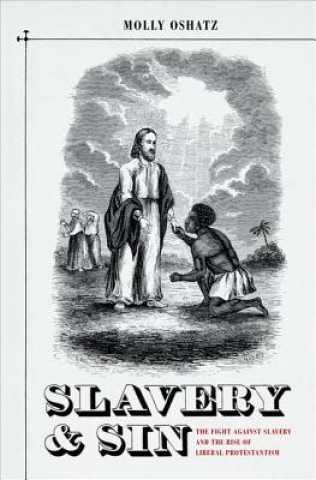
Doručení
Nákupní rádce





Nehodí se? Vůbec nevadí! U nás můžete do 30 dní vrátit
 Dárkový poukaz
V libovolné hodnotě
Dárkový poukaz
V libovolné hodnotě
S dárkovým poukazem nešlápnete vedle. Obdarovaný si za dárkový poukaz může vybrat cokoliv z naší nabídky.
Slavery and Sin
 Angličtina
Angličtina
 259 b
259 b
30 dní na vrácení zboží
Mohlo by vás také zajímat


In a groundbreaking examination of the antislavery origins of liberal Protestantism, Molly Oshatz contends that the antebellum slavery debates forced antislavery Protestants to adopt an historicist understanding of truth and morality. Unlike earlier debates over slavery, the antebellum slavery debates revolved around the question of whether or not slavery was a sin in the abstract. Unable to use the letter of the Bible to answer the proslavery claim that slavery was not a sin in and of itself, antislavery Protestants, including William Ellery Channing, Francis Wayland, Moses Stuart, Leonard Bacon, and Horace Bushnell, argued that biblical principles opposed slavery and that God revealed slavery's sinfulness through the gradual unfolding of these principles. Although they believed that slavery was a sin, antislavery Protestants' sympathy for individual slaveholders and their knowledge of the Bible made them reluctant to denounce all slaveholders as sinners. In order to reconcile slavery's sinfulness with their commitments to the Bible and to the Union, antislavery Protestants defined slavery as a social rather than an individual sin. Oshatz demonstrates that the antislavery notions of progressive revelation and social sin had radical implications for Protestant theology. Oshatz carries her study through the Civil War to reveal how emancipation confirmed for northern Protestants the antislavery notion that God revealed His will through history. She describes how after the war, a new generation of liberal theologians, including Newman Smyth, Charles Briggs, and George Harris, drew on the example of antislavery and emancipation to respond to evolution and historical biblical criticism. The theological innovations rooted in the slavery debates came to fruition in liberal Protestantism's acceptance of the historical and evolutionary nature of religious truth.
Informace o knize
 Angličtina
Angličtina
Kategorie




 Jak nakupovat
Jak nakupovat

















